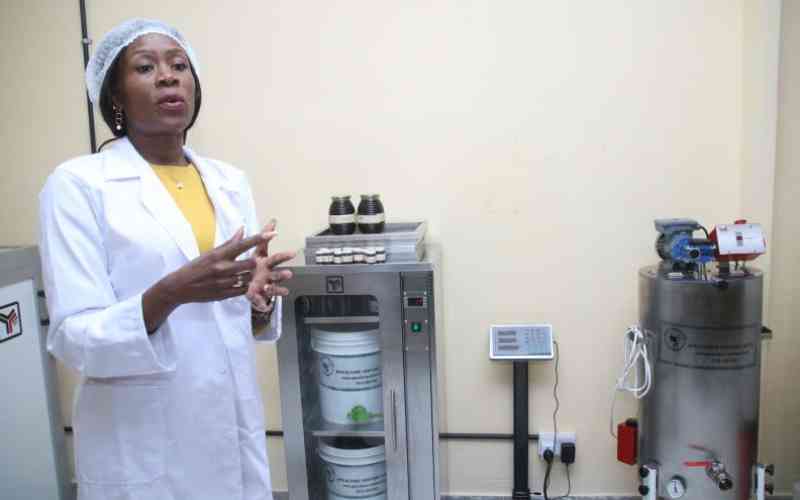×
The Standard e-Paper
Stay Informed, Even Offline

Pauline Otila jokingly calls herself the queen bee and by the end of the interview, we christen her the same. Although her colony of workers is not in its thousands- and they are not all female -it is a beehive of activity at Apiculture Venture Limited.
Since she started it in 2018, she has built homes for bees, harvested honey from them and made numerous products from her buzzy little friends. She loves them; seats in her office boast bee-themed covers and, on her bosom, she wears a silver bee sculpture.